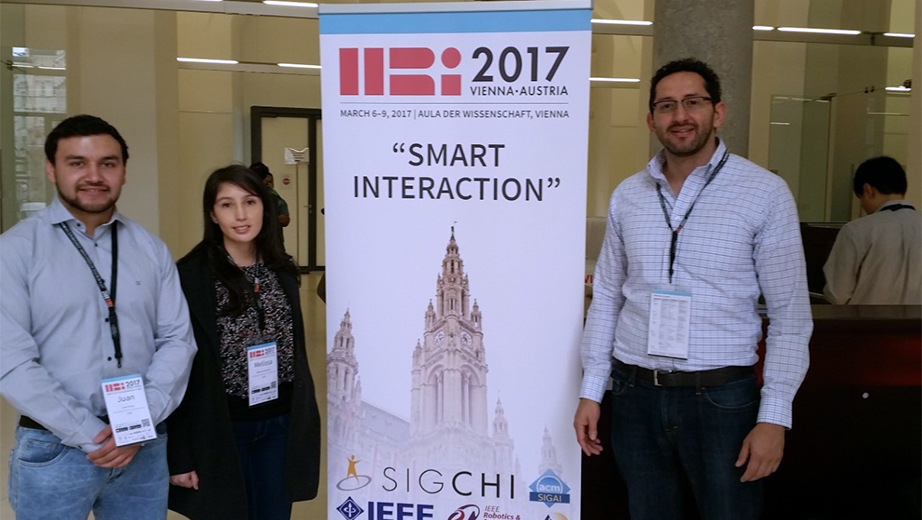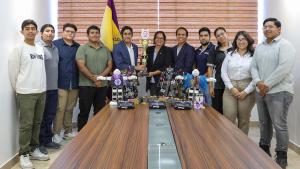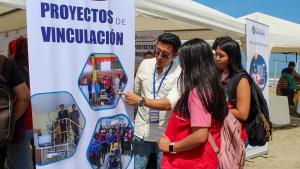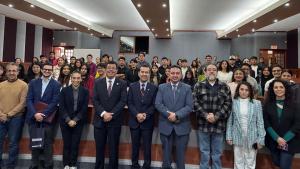Noticia
UPS researchers presented a model to preserve cultural heritage based on robots

The Interaction, Robotics and Automation Research Group (GIIRA for its acronym in Spanish) presented its research project titled "A Multimodal Robot Based Model for the Preservation of Intangible Cultural Heritage" during the 12th edition of the Conference for basic and applied human-robot interaction research. The aim of this conference is to present innovative ideas on the latest theories, technologies and topics related to the state of the art in human-robot interaction.
Professor Eduardo Calle and students Melissa Montalvo and Fernando Chica, who major in electronic engineering and are members of GIIRA, presented the paper.
During their presentation, they analyzed the changes in information communication processes due to the development of new technologies such as the transition from books to multimedia systems because of the development of computers. The researchers suggest that the appearance of social robots (machines designed to emulate feeling and emotions, and interact with humans will produce a new way of communicating information by incorporating spatial mobility and emotions to traditional multimedia systems and enabling the use of systems such as non verbal communication and improving interaction between technology and people.
The project suggests how this new form of interaction can be useful for the development of systems that enable the conservation of intangible cultural heritage, such as oral and dance traditions. it also suggests the creation of a multimodal platform that combines traditional technologies with emerging technologies. The researchers say this project seeks to combine "the new with the old" and increase the interest of new generations on their cultural identity through the effective use of emerging technologies.
"It's interesting to see how new technologies like social robots and their ways of interaction can influence in culture and change it by implicitly bringing moral and cultural values of its programmer. Therefore, it is fundamental to make emerging technologies compatible with the cultural diversity of each region and help protect it", said Calle.
Our university researchers were able to share their knowledge with professors from leading universities and institutes in this field such as the Massachusetts Institute of Technology, Stanford, Berkeley, the Royal Institute of Technology, and others. The main topics of the conference were: Creation of more expressive robots; Systems of dialogue between humans and robots; Use of robots in education; New techniques and research methodologies in human-robot interaction; Confidence and privacy in automatic systems; New methods of programming and teaching robots, among other topics
Contenidos Relacionados
Contenidos Relacionados
Noticias Relacionadas
Noticias Relacionadas





Follow us
Follow us